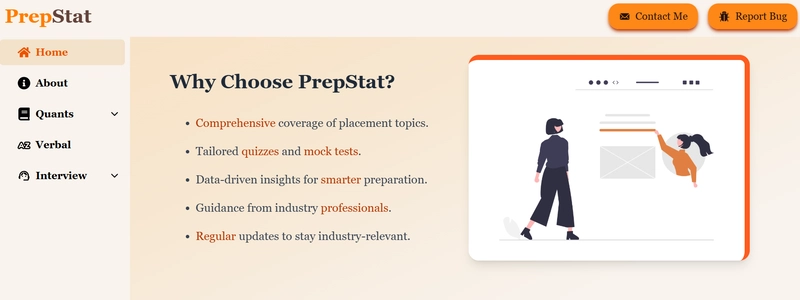The future of open-source monetization: trends and predictions
As the open-source ecosystem continues to evolve, it's essential to consider upcoming trends and predictions about how these projects will be financially supported. What the future holds for open-source monetization? Rising popularity of GitHub sponsors and alternatives. GitHub Sponsors has already proven itself as a leading platform for supporting open-source developers, but the future may bring new competitors or evolutions in the funding model. We can expect more services similar to GitHub Sponsors that integrate with repositories to offer an easy way for users to support developers directly. Platforms like Open Collective and Patreon could evolve into more specialized tools that cater specifically to open-source creators, making it even easier for users to pledge support. Crowdfunding for open-source projects will become a primary method of sustaining them, with new tools for integrating micro-donations and subscriptions into developer workflows. Premium features and SaaS transformation. One successful strategy for monetizing open-source projects is offering premium features. This trend will only grow as more developers realize the value of converting their open-source tools into paid software as a service (SaaS). Projects that have a broad user base and a clear need for additional functionality can introduce paid, advanced features like analytics, API access, or enhanced security. The SaaS model will be increasingly adopted by open-source projects, where developers offer essential features for free, while advanced tools or enterprise solutions are locked behind a paywall. NFTs and Blockchain-backed monetization models. Blockchain technology, especially through NFTs (Non-Fungible Tokens), is beginning to show its potential in the open-source space. Developers could use NFTs to monetize their work by offering exclusive, tokenized versions of their code or project contributions. Additionally, blockchain could provide transparent, immutable tracking of contributions, creating new ways to reward contributors and establish a more equitable revenue-sharing model. Open-source projects will start adopting NFTs and blockchain to provide unique digital assets or governance rights to project supporters, revolutionizing how contributions and support are rewarded. Automated income with Open-source marketplaces. Open-source software marketplaces, where developers can sell plugins, themes, or other add-ons, are likely to grow in importance. Marketplaces could become more integrated into the development process, enabling developers to easily monetize their small contributions or packages of code. Think of platforms like npm for JavaScript libraries, but extending to a broader range of tools and languages. Open-source marketplaces will emerge as automated hubs for small-scale monetization, where developers can easily list, sell, or license their work to the community. Corporate sponsorship and commercial collaborations. Corporations have long been contributors to the open-source ecosystem, and this trend will only intensify. More companies will recognize the value of sponsoring or even acquiring open-source projects as part of their overall business strategy. We’ll likely see more structured partnerships where businesses directly invest in the success and sustainability of open-source projects that are central to their infrastructure. Corporate sponsorship will become more formalized, with corporations offering long-term funding and even taking equity stakes in open-source projects that drive significant value for their products or services. More transparency and fairer revenue distribution models. With the rise of open-source software, there has also been increasing scrutiny on how income is shared within the community. Developers, contributors, and users are demanding more transparency in how funds are raised and distributed. Platforms that offer better revenue-sharing models will become more popular, allowing all contributors to get paid fairly based on their involvement and contributions. The future will bring more decentralized, transparent models for revenue distribution, where contributors are rewarded in proportion to their contributions, potentially leveraging smart contracts and decentralized finance (DeFi) systems. Subscription models for Open-source communities. Open-source communities will also likely move toward subscription-based models. Instead of relying on sporadic donations, developers could introduce membership tiers offering exclusive access to private discussions, development insights, or early access to features. These subscription-based models would provide developers with a steady stream of income while fostering more community engagement. The future of open-source monetization looks promising, with various innovative models emerging that can sustain developers, contributors, and the community as a whole. Whether through corporate partnerships, premium features, or blockc

As the open-source ecosystem continues to evolve, it's essential to consider upcoming trends and predictions about how these projects will be financially supported. What the future holds for open-source monetization?
Rising popularity of GitHub sponsors and alternatives. GitHub Sponsors has already proven itself as a leading platform for supporting open-source developers, but the future may bring new competitors or evolutions in the funding model. We can expect more services similar to GitHub Sponsors that integrate with repositories to offer an easy way for users to support developers directly. Platforms like Open Collective and Patreon could evolve into more specialized tools that cater specifically to open-source creators, making it even easier for users to pledge support.
Crowdfunding for open-source projects will become a primary method of sustaining them, with new tools for integrating micro-donations and subscriptions into developer workflows.
Premium features and SaaS transformation. One successful strategy for monetizing open-source projects is offering premium features. This trend will only grow as more developers realize the value of converting their open-source tools into paid software as a service (SaaS). Projects that have a broad user base and a clear need for additional functionality can introduce paid, advanced features like analytics, API access, or enhanced security.
The SaaS model will be increasingly adopted by open-source projects, where developers offer essential features for free, while advanced tools or enterprise solutions are locked behind a paywall.
NFTs and Blockchain-backed monetization models. Blockchain technology, especially through NFTs (Non-Fungible Tokens), is beginning to show its potential in the open-source space. Developers could use NFTs to monetize their work by offering exclusive, tokenized versions of their code or project contributions. Additionally, blockchain could provide transparent, immutable tracking of contributions, creating new ways to reward contributors and establish a more equitable revenue-sharing model.
Open-source projects will start adopting NFTs and blockchain to provide unique digital assets or governance rights to project supporters, revolutionizing how contributions and support are rewarded.
Automated income with Open-source marketplaces. Open-source software marketplaces, where developers can sell plugins, themes, or other add-ons, are likely to grow in importance. Marketplaces could become more integrated into the development process, enabling developers to easily monetize their small contributions or packages of code. Think of platforms like npm for JavaScript libraries, but extending to a broader range of tools and languages.
Open-source marketplaces will emerge as automated hubs for small-scale monetization, where developers can easily list, sell, or license their work to the community.
Corporate sponsorship and commercial collaborations. Corporations have long been contributors to the open-source ecosystem, and this trend will only intensify. More companies will recognize the value of sponsoring or even acquiring open-source projects as part of their overall business strategy. We’ll likely see more structured partnerships where businesses directly invest in the success and sustainability of open-source projects that are central to their infrastructure.
Corporate sponsorship will become more formalized, with corporations offering long-term funding and even taking equity stakes in open-source projects that drive significant value for their products or services.
More transparency and fairer revenue distribution models. With the rise of open-source software, there has also been increasing scrutiny on how income is shared within the community. Developers, contributors, and users are demanding more transparency in how funds are raised and distributed. Platforms that offer better revenue-sharing models will become more popular, allowing all contributors to get paid fairly based on their involvement and contributions.
The future will bring more decentralized, transparent models for revenue distribution, where contributors are rewarded in proportion to their contributions, potentially leveraging smart contracts and decentralized finance (DeFi) systems.
Subscription models for Open-source communities. Open-source communities will also likely move toward subscription-based models. Instead of relying on sporadic donations, developers could introduce membership tiers offering exclusive access to private discussions, development insights, or early access to features. These subscription-based models would provide developers with a steady stream of income while fostering more community engagement.
The future of open-source monetization looks promising, with various innovative models emerging that can sustain developers, contributors, and the community as a whole. Whether through corporate partnerships, premium features, or blockchain integration, the open-source ecosystem will continue to evolve to create more sustainable revenue streams for developers. Open-source projects will increasingly become commercially viable without sacrificing their core principles of collaboration and openness.
What's Your Reaction?































